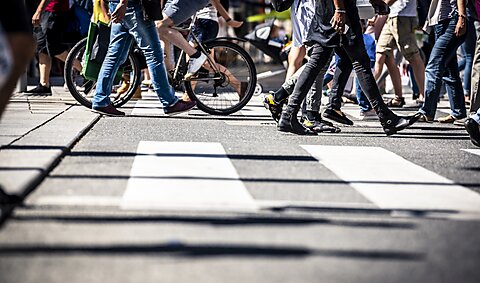Jeffrey A. Singer
Casual readers might misinterpret reports of yesterday’s decision by the federal Canadian government to make it illegal to consume illicit drugs in public spaces in British Columbia to mean that the federal government has just squelched the province’s three‐year drug decriminalization. That is not the case.
In 2023, lawmakers in Ottawa exempted British Columbia from federal drug prohibition laws, permitting the province to begin a three‐year pilot program decriminalizing the possession of all illicit drugs for personal use. Advocates of the idea argued decriminalization would allow law enforcement to focus resources on violent crime and drug trafficking.
Many residents of Vancouver and other British Columbia municipalities have grown upset viewing drug use and disorderly behavior in public spaces and complained to the provincial government. The provincial government requested federal lawmakers to modify British Columbia’s exemption to prohibit drug use in public parks, public sidewalks, and other public spaces.
The government will still allow adults to possess illicit drugs for personal use, but they must use them in private spaces and legal residences, overdose prevention centers, or other facilities operated by harm reduction organizations.
It is understandable and not surprising that many residents of British Columbia communities don’t want people openly using mind‐altering drugs, especially in front of their children. They may get particularly upset if people under the influence of these drugs crowd public walkways, the doorways of their businesses, or congregate in public parks and near children’s playgrounds.
I think it is crucial for libertarians—and others who seek an end to the war on drugs—to make clear that we have no problem, in principle, with public nuisance laws. However, lawmakers must overcome a high bar when designating certain behaviors as public nuisances. And law enforcement should be reasonable, empathetic, and discretionary when they enforce such laws. I made this point in this blog post.
State and local governments have long had laws that prohibit openly consuming alcohol in public spaces. And public nuisance laws have their roots in English common law.
If harm reduction advocates and drug war opponents hope to see incremental reforms such as drug decriminalization avoid a public backlash, they should stress two major points:
Decriminalization is not as effective as legalization. It preserves the black market, enriching the drug cartels and incentivizing them to develop even more potent forms of illicit drugs. Decriminalization also means drug users must still obtain their drugs on the dangerous black market, where they cannot be sure of the potency and purity of the drugs they purchase or even if they are the drugs they believe they are buying. Advocates of decriminalization should avoid promoting unrealistic expectations of decriminalization’s impact on overdose deaths.
They should clarify that there is nothing wrong with enforcing public nuisance laws, as I discussed in this blog post, as long as they are enforced rationally and non‐violently. (The same principle applies to homeless people camping on commercial streets or in front of residential properties.)
Mary Anastasia O’Grady made a similar point when she wrote of Ottawa’s adjustment to British Columbia’s decriminalization experiment in the Wall Street Journal this week: ”The U.S. gave up alcohol prohibition in 1933 but to this day you can’t walk down Fifth Avenue with an open bottle of vodka. It isn’t too much to ask that drug use be contained to private spaces.”

